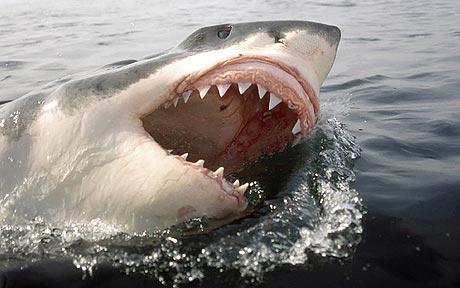A Donegal-based shark expert has said there is no reason why a Great White shark headed for Irish waters will not arrive here in the coming days.
The man-eater, understood to be a little more than 1,000kms off the coast of Ireland, is on course to arrive off our coast in the coming days.
The general consensus is that the monster 970kg shark, named Lydia by scientists tracking her across the Atlantic Ocean, will change course away from our coastline.
The great white has been averaging just over 100kms a day in its journey across the Atlantic Ocean.
But shark expert Emmett Johnston said there is no biological reason why the shark will not come into Irish waters.
“A lot of people think that Irish waters are too cold or there will not be enough food for a great white to survive on but that is simply not the case.
“In fact, there is no biological reason why a great white shark could not make its way into Irish waters.
“There is plenty for it to feed on including fish and seals and other mammals.
“And the idea that our waters are too cold for the species is not the case. They survive in colder waters off South Africa so that is not a reason,” he said.
Emmett, who oversees the Irish Basking Shark project, is a wildlife ranger with the Irish Parks and Wildlife Service.
He has led groundbreaking studies into shark behaviour off the coast of Donegal for the past decade.
His team have used satellite tags to track the huge basking sharks of the coast of Cape Verde.
But while he claims there is no biological reason for the great whites not to arrive in Irish waters, it has just never happened.
“There has been numerous studies and expeditions done on the existence of great whites off both Ireland and Britain and no conclusive evidence has been found to suggest they are here.
“So while there is no evidence they have been here, there is no biological reason why it could not come into Irish waters. It has just never happened,” he said.
However Emmett described the discovery of a porbeagle shark off the coast of Kerry last weekend as being a ‘leprechaun version’ of the great white.
Great whites are frequently found in coastlines along Australia, South Africa and North America but have more recently been discovered in cooler waters off Canada and Alaska.
Tags: